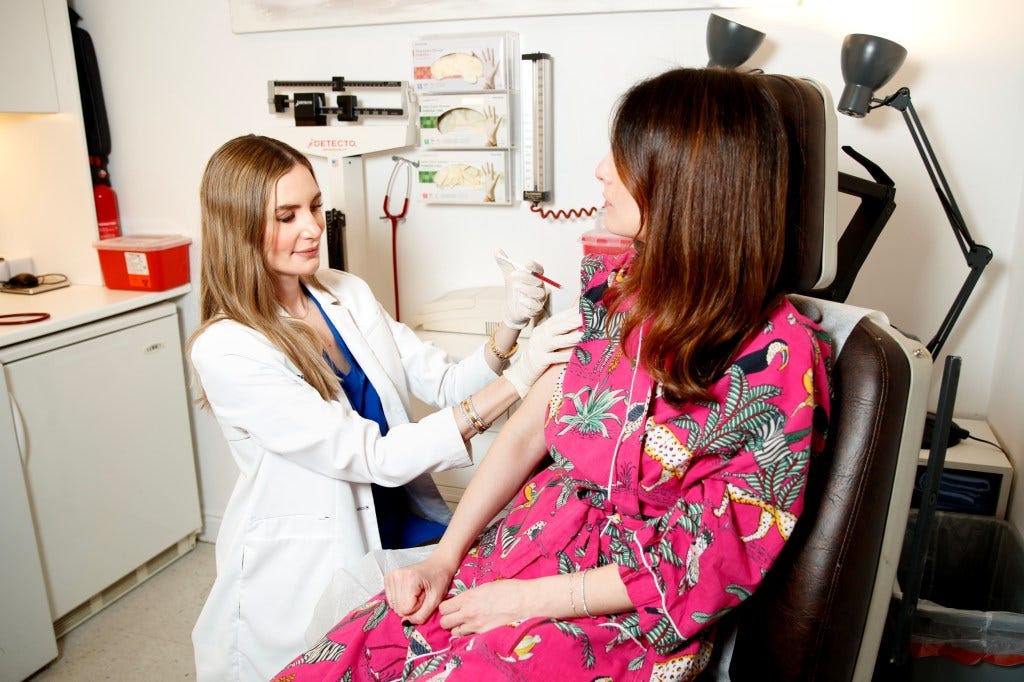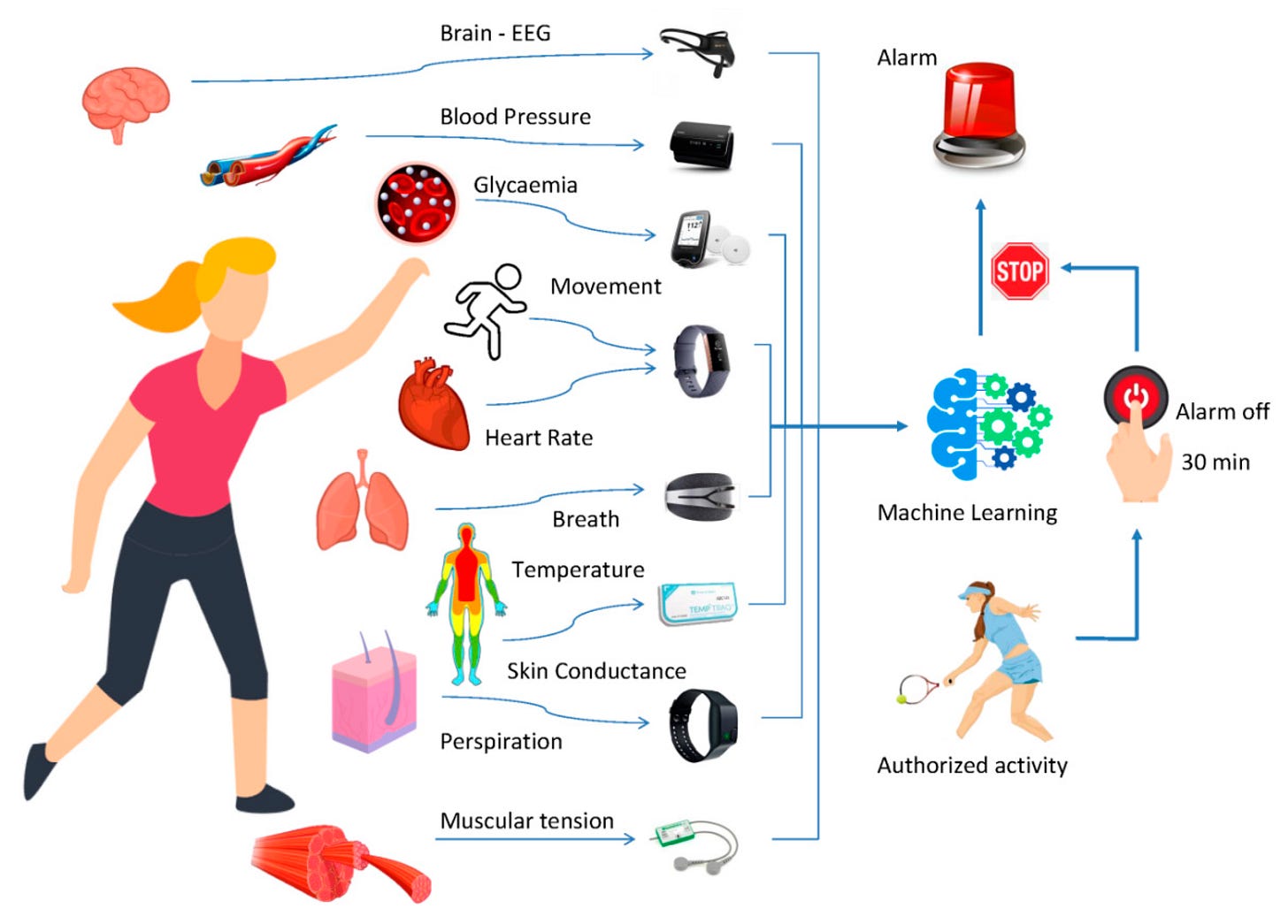We have found the best doctor in NYC
but she's EXPENSIVE
You’re one sleep away from Friday, and that’s reason enough to celebrate. But before you mentally check out, we’ve got a lineup that’ll make today worth your time.
📌 Look up your birth year’s biggest pop culture moment and share it with someone.
Whether it’s a hit song, a weird fashion trend, or a blockbuster movie—you might just spark a fun conversation!
Now, let’s get to the good stuff.
📌 The ‘It’ doctor of the Upper East Side
Dr. Amanda Kahn, a Columbia-educated longevity specialist, is the go-to doctor for NYC’s elite, charging $1,500 per month for cutting-edge anti-aging treatments.
Her practice, based on cellular-level rejuvenation, offers services like microdosed Ozempic for energy, NAD+ injections for inflammation, and peptide "stacks" to boost metabolism, immunity, and collagen production.
New patients undergo extensive screenings, including full-body MRIs and genetic blood tests costing around $3,000. Many of her clients, from socialites to former Olympians, seek solutions for aging-related concerns like arthritis and cognitive decline.
Kahn emphasizes the importance of medically supervised peptide treatments, warning against unregulated sources. Patients, like 68-year-old designer Daniele Chemla, report increased energy and mental clarity.
📌 This mom left her children in ‘feces’ for 3 years
Kelli Bryant, 34, has been charged with child abuse after police found her three children, ages 15, 13, and 12, living alone in a Pontiac, Michigan, home filled with trash and feces.
The children, who had been abandoned for years, were discovered hiding when officers entered the uninhabitable residence after a call from the landlord.
Prosecutor Karen McDonald described the conditions as “a revolting pit of refuse and squalor.”
The children, covered in filth, struggled with basic hygiene at the hospital, having lived without running water or proper care since 2020 or 2021.
Bryant, who only communicated with them via text for food, is now in custody.
📌 These supplements can slow your aging, but…do you even need them?
Senolytic supplements, which target aging by eliminating “zombie cells,” are gaining popularity.
These senescent cells stop dividing but don’t die, contributing to inflammation and diseases like arthritis.
While a 2018 mouse study showed improved physical function and lifespan, human results remain uncertain.
A 2024 Mayo Clinic trial found benefits for postmenopausal women with high senescent cell levels, but Dr. Sundeep Khosla warns, “People are using them as anti-aging agents without knowing if they have high enough senescent cell numbers.”
Dr. James Kirkland adds, “Don’t take advice over the internet... some interventions could even cause a lot of harm.” Research is ongoing, but experts urge caution.
📌 BTW, straight men are not romantic. But, is that news?
Research shows men fall in love faster, confess love 42 days earlier, and are less likely to initiate breakups (65% of breakups are started by women).
Men also suffer more post-breakup, experiencing loneliness and even a doubled suicide risk.
However, this doesn’t mean they’re more romantic, it reflects societal conditioning.
Women are taught to be guarded in relationships, while men rely heavily on partners for emotional support.
Women still face pressure to be successful in dating, with single men seen as roguish while single women are pitied.
Many women keep emotional barriers up to protect themselves, often due to negative dating experiences.
Meanwhile, men struggle post-breakup because they lack emotional outlets outside relationships, relying on women as their primary source of support.
This dependence explains why men take breakups harder, not because they love more deeply, but because they lose access to emotional and domestic labor.
Women, by contrast, adapt faster, often feeling relief from unreciprocated care work.
So, men may be bolder in expressing love, but more romantic? Unlikely.
Their actions stem more from self-interest and impulse rather than a deeper, more meaningful connection.
📌 Facing domestic violence? This AI tool could help
AIRS (Automated Intimate Partner Violence Risk Support System) is an AI tool that helps doctors detect signs of domestic abuse up to four years earlier than usual, with 80% accuracy.
It analyzes patient medical records and X-rays to find hidden patterns of abuse.
Currently used in hospitals like Brigham and Women’s in Boston, AIRS has also been tested at UCSF and is being evaluated in other healthcare systems.
One key finding is that certain injuries, like a broken ulna (a forearm bone), often indicate abuse rather than an accident.
While some experts worry about relying too much on AI, doctors and social workers see AIRS as a helpful tool to support victims.
So, that’s it for today. If you found this edition interesting and entertaining, please drop a like and follow us for more!
See ya👋








